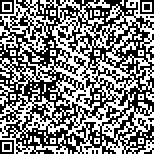| 摘要: |
| 以褐藻裙带菜(Undaria pinnatifida)为实验材料,采用蔗糖密度梯度超速离心的方法纯化类囊体膜;以去污剂SDS为增溶剂(SDS:Chl=20:1,4℃增溶20min),再用蔗糖密度为
60%、50%、40%、30%、20%、15%和l0%的梯度离心法,从裙带菜中成功地分离出5条含色素的蛋白质复合物带。离心结果显示在离心管顶部没有任何颜色,表明经过SDS增溶没有产生游离色素,纯化的类囊体膜和5条色素条带进行吸收光谱分析,显示了属于叶绿素a(Chl-a)的吸收峰:418、436和667到672nm。叶绿素c (Chl-c)的吸收峰:615和620nm。荧光发射最高峰位于682到690nm的区域。荧光激发光谱显示有Chl-a和Chl-c的激发峰,40%层带所含有的色素复合物只有属于Chl-a的吸收峰。分析结果表明:10%、15%层带所含有的色素复合物是褐藻的捕光色素复合物;20% 、30%层带所含有的色素复合物是浅绿色的PSⅡ复合体(仍然含有捕光色素),40%层带所含有的色素复合物是深绿色PSI复合体,50% 层带所含有的色素复合物是没有被增溶的类囊体膜。 |
| 关键词: 裙带菜, 色素蛋白复合物, 光谱分析 |
| DOI: |
| 分类号: |
| 基金项目:国家自然科学基金重点资助项目,39890390号;国家自然科学基金面上资助项目,30170499号 |
|
| SEPARATION AND SPECTRAL ANALYSIS OF PIGMENT-PROTEIN COMPLEXES FROM BROWN ALGAE UNDARIA PINNATIFIDA |
|
LIU Hong-Yan1,2, WANG Guang-Ce2, HOU He-Sheng3, ZENG Cheng-Kui(C.K.Tseng)2
|
|
1.Tianjin University of Science&Technology;2.Institute of Oceanology,Chinese Academy of Sciences;3.College of Life Science,Liaoning Normal University
|
| Abstract: |
| The technique of separating light active pigment-protein complexes from brown algae Undaria pinnatifida was developed in this paper. Five pigment-protein complexes were isolated by centrifugation on discontinuous sucrose density gradient of the SDS-treated thylakoid membrane. The method for thylakoid membrane isolation was based on appropriate isolation buffers and removal of mucilage, and it may be applicable to other macroalgae with large amounts of mucilage. The best separation was obtained with detergent SDS (SDS:Chl = 20:1, solubilized 20min at 4℃), and sucrose density gradient (10% , 15%, 20% , 30% , 40% , 50% , 60% W/W). After centrifugation, no color was found at the tip of the vials in upper part gradient, indicating that no pigment released during the solubilization by SDS. Thus the pigment composition of the discrete bands observed on the gradient can be considered to be representative of the native state of the complexes. The absorption and fluorescence emission spectra of the purified thylakoids and five pigment-protein complexes isolated from U.pinnatifida were examined. The light fractions were recovered on the 10% and 15% sucrose layers, besides Chl-a, they presented high Chl-c and fucoxanthin levels compared to the other fractions. They showed absorption maxima at 671nm due to the presence of Chl-a and fluorescence emission maxima at 682nm. The fractions, observed on the 20% and 30% sucrose layers, possessed Chl-a, a low amount of Chl-c and a small amount of fucoxanthin. Their maximum absorption peak was at 667nm and their fluorescence emission were characterized by maxima at 682nm, 690nm. The heavy fraction, appeared on the 40% sucrose layer, possessed essentially Chl-a and very little Chl-c and fucoxanthin. The absorption maximum at 668nm and fluorescence emission maximum at 685nm, it lacked the 730nm characteristic emission peak which is regarded as a symbol of PSⅠ in high plants. The fluorescence excitation spectra showed excitation maxima associated with Chl-a and Chl-c absorption and energy transfers from fucoxanthin to Chl, but not on 40% sucrose layer in which pigments were disconnected. The separated complexes on 10% and 15% sucrose layers that had excitation peak in the 500 to 550nm region due to fucoxanthin showed efficient energy coupling between the accessory pigment and Chl-a, and were proposed to function in light-harvesting, identified as LHCP. The separated complexes on 20% and 30% sucrose layers that had several excitation peaks due to Chl-a, fucoxanthin and Chl-c, were identified as composed of PSⅡ particles. The separated complex on 40% Sucrose layer having only one excitation peak due to the presence of Chl-a represented rather pure PSⅠ complex. |
| Key words: Undaria pinnatifida, Pigment-protein compounds, Spectral-analysis |
